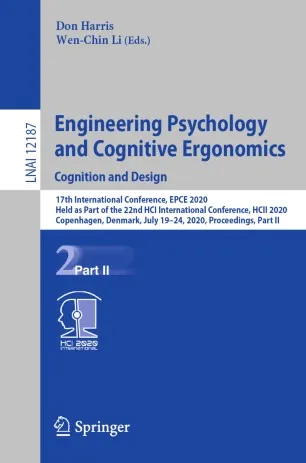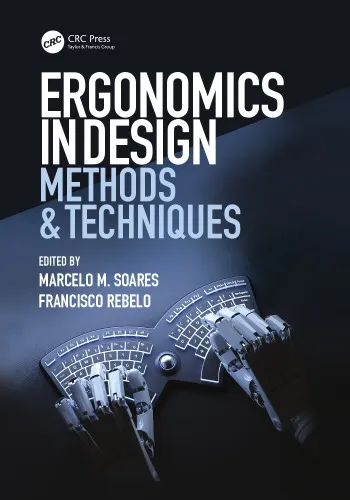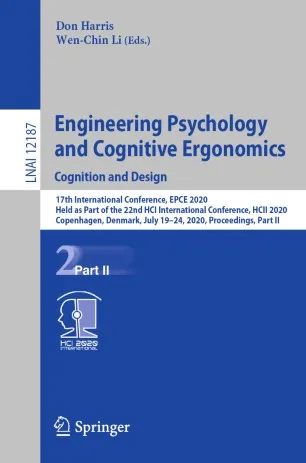Engineering Psychology and Cognitive Ergonomics: Cognition and Design: 14th International Conference, EPCE 2017, Held as Part of HCI International 2017, Vancouver, BC, Canada, July 9-14, 2017, Proceedings, Part II
4.5
Reviews from our users

You Can Ask your questions from this book's AI after Login
Each download or ask from book AI costs 2 points. To earn more free points, please visit the Points Guide Page and complete some valuable actions.Related Refrences:
Introduction
The book Engineering Psychology and Cognitive Ergonomics: Cognition and Design is the second volume of the proceedings from the 14th International Conference on Engineering Psychology and Cognitive Ergonomics (EPCE 2017), held as part of the renowned HCI International 2017 conference in Vancouver, BC, Canada. With a strong focus on cognition, design, and engineering psychology, this volume encapsulates groundbreaking research, emerging technologies, and innovative practices that highlight the interdisciplinary nature of modern human-computer interaction (HCI) and cognitive ergonomics.
Edited by Don Harris, the book offers a comprehensive exploration of how cognitive processes interact with design principles, affecting usability, efficiency, and user experience across various domains. The contributions in this volume showcase state-of-the-art studies and applications involving cognitive ergonomics, including complex decision-making, user-centered design, human error, and tools that bridge the gap between technology and cognitive science. This book is an indispensable resource for researchers, practitioners, and students who are keen to explore the intersection of cognition, psychology, and engineering in creating effective, human-centered systems.
Detailed Summary of the Book
The proceedings presented in this volume delve deeply into how humans interact with systems, tools, and environments designed to enhance their productivity and decision-making. This book aligns academic research with practical applications, focusing on design strategies that optimize ease of use, minimize human errors, and ensure safety.
Among the various topics explored, the book emphasizes cognitive factors in design. Chapters investigate how our mental processes, including attention, working memory, and problem-solving abilities, influence the way we interact with the tools and systems around us. By studying tasks and contexts – whether in healthcare, aviation, automotive systems, or digital interfaces – the research reveals challenges that engineers and designers must address to harmonize human capabilities with technological advancements.
Each contribution has been peer-reviewed, showcasing the breadth and depth of research being conducted at the frontier of cognitive ergonomics and HCI. The contents emphasize both fundamental research on cognitive theories and applied studies that explore real-world system design, ensuring that readers gain insights into theory-driven practice and evidence-backed solutions.
Key Takeaways
- The significance of understanding human cognition when developing system interfaces.
- Practical insights into user-centered design approaches that address real-world complexities.
- Comprehensive strategies to mitigate human errors through cognitive ergonomics.
- Detailed case studies demonstrating the integration of cognitive theories into the design process.
- Critical interpretations of how cognitive psychology can influence future technological innovations.
Famous Quotes from the Book
"Designing for humans is not just about aesthetics; it is about aligning with the cognitive processes that define how we think, act, and decide."
"The intersection of cognition and engineering is where true innovation occurs – when systems empower users without overwhelming them."
"Combining the principles of cognitive ergonomics with the tools of modern engineering creates systems as adaptable and intelligent as the humans who use them."
Why This Book Matters
In a world increasingly dominated by complex technologies, ensuring that systems are intuitive, efficient, and responsive to human needs has become paramount. This book underscores the critical role cognitive ergonomics plays in shaping the way we design, use, and interact with various tools and systems. By merging engineering psychology with design principles, it offers a blueprint for creating products and systems that are not only functional but also human-centered.
Moreover, the insights contained in this volume are indispensable for understanding the challenges posed by modern technology and for envisioning solutions that adapt to the limitations and strengths of human cognition. This is particularly relevant in safety-critical settings where errors can have devastating consequences, such as healthcare or transport systems.
This book is not only an essential academic resource but also a practical guide for professionals across industries. Engineers, designers, psychologists, and HCI professionals will find this work invaluable for its ability to bridge theoretical concepts with applications that impact everyday life. It is as much a tribute to the field's advancements as it is a roadmap for future exploration.
Free Direct Download
You Can Download this book after Login
Accessing books through legal platforms and public libraries not only supports the rights of authors and publishers but also contributes to the sustainability of reading culture. Before downloading, please take a moment to consider these options.
Find this book on other platforms:
WorldCat helps you find books in libraries worldwide.
See ratings, reviews, and discussions on Goodreads.
Find and buy rare or used books on AbeBooks.
1164
بازدید4.5
امتیاز0
نظر98%
رضایتReviews:
4.5
Based on 0 users review
Questions & Answers
Ask questions about this book or help others by answering
No questions yet. Be the first to ask!














